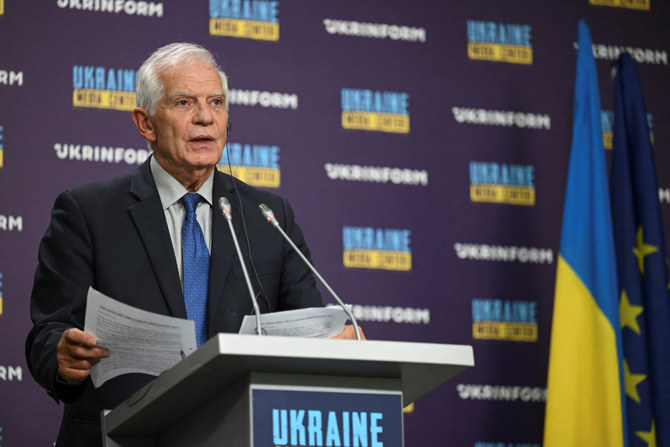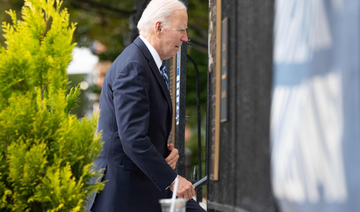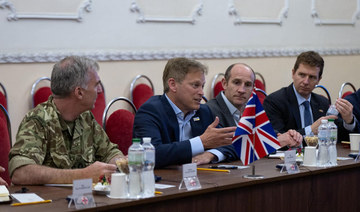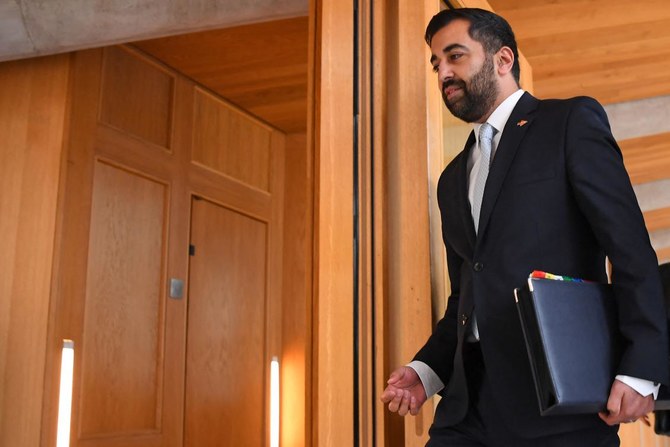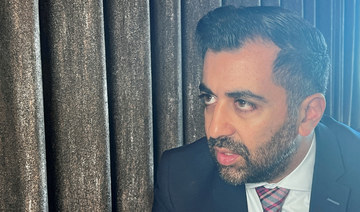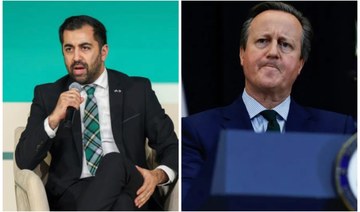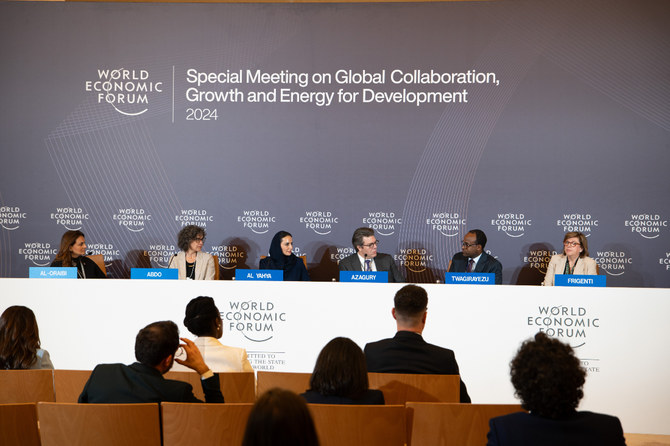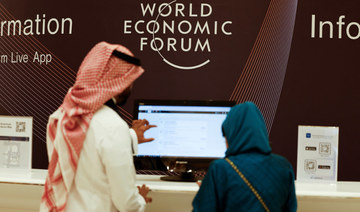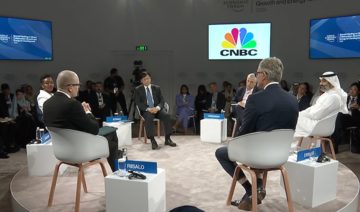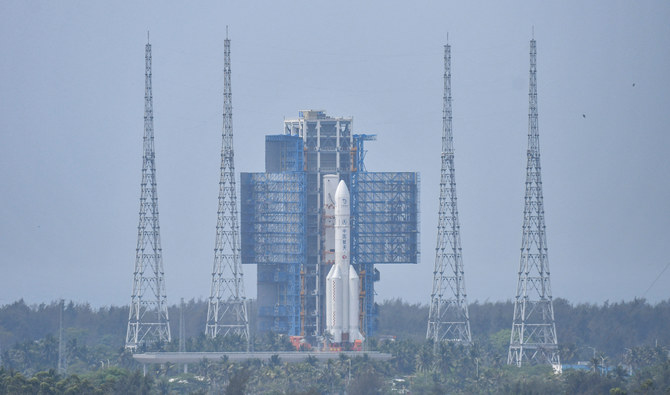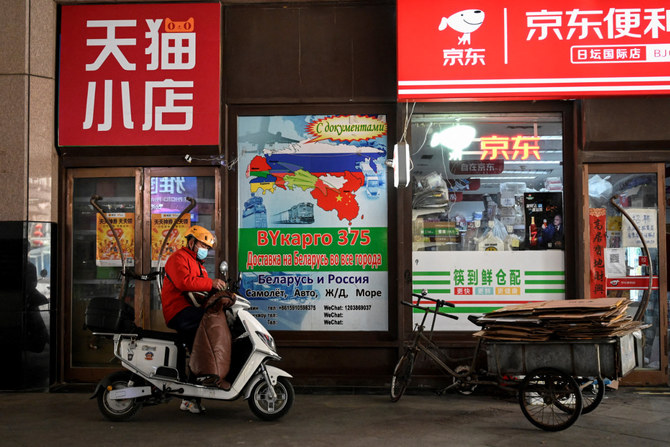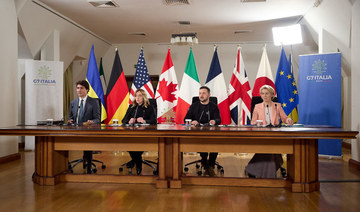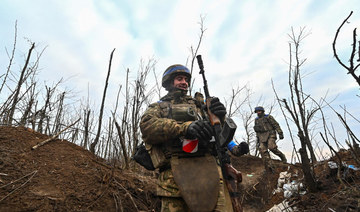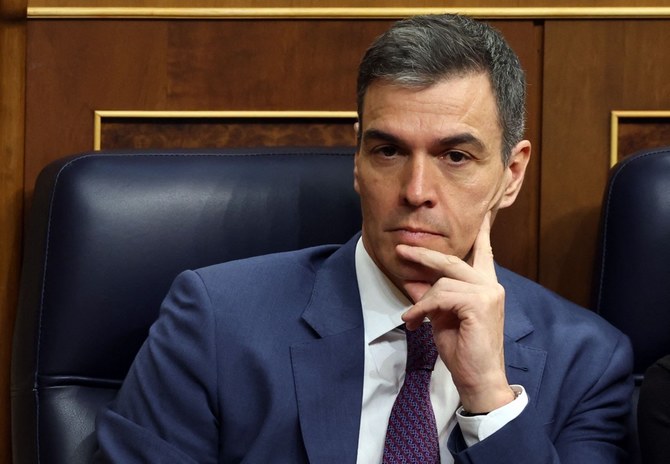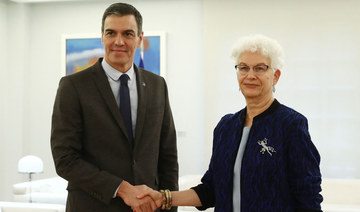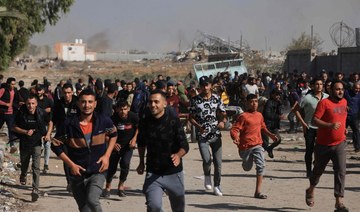LONDON: The European Union’s foreign policy chief called on US lawmakers Sunday to reconsider their decision to omit financial support for Ukraine from a stop-gap budget bill Congress passed to halt a federal government shutdown.
The legislation approved Saturday to keep the federal government running until Nov. 17 dropped provisions on providing additional aid to Ukraine, a White House priority opposed by a growing number of Republican lawmakers.
Speaking in Kyiv after meeting with Ukrainian President Volodymyr Zelensky, the EU’s top diplomat, Josep Borrell, said European officials were surprised by the last-minute agreement in Washington and pledged the 27-nation bloc would carry on helping the invaded country defeat Russia.
“I have hope that this will not be a definitive decision and Ukraine will continue having the support of the US”, Borrell said.
“We are facing an existential threat. Ukrainians are fighting with all their courage and capacities, and if we want them to be successful, then you have to provide them with better arms, and quicker,” the Spanish diplomat added.
Ukrainian officials stressed that US backing for Ukraine would continue despite the stop-gap legislation.
Andriy Yermak, the head of Ukraine’s presidential office, said America’s relationship with Ukraine had not changed and that Ukrainian officials meet regularly with representatives from both the Democratic and Republican parties.
“All of Ukraine’s key partners are determined to support our country until its victory in this war,” he wrote on Telegram.
However, the omission of additional Ukrainian aid from the package has raised concerns in Kyiv, which relies heavily on Western financial aid and military equipment in its fight against Russia’s ongoing invasion.
A little more than a week ago, lawmakers met in the Capitol with Zelensky, who sought to assure them his military was winning the war but stressed that additional aid would be crucial for continuing the fight.
Yet recent voting in the House has pointed to increased US isolationism and a growing resistance to providing further aid as the war, now in its 20th month, grinds on.
Writing on Telegram, Ukrainian parliament member Oleksiy Goncharenko said Sunday that Kyiv needed to adopt new measures to ensure the continued support of both American officials and the general public. Without it, Goncharenko said, Ukrainians have “practically no chance” of defending themselves.
He set forward a list of proposals that included permanently posting Ukrainian delegates in Washington.
“We need to speak the language of money with the US: How will the United States benefit from Ukraine’s victory? What will the US get? What will American taxpayers get?” Goncharenko wrote. “We need to change strategy. We need to act differently. Let’s fix this situation. We cannot lose.”
Over the weekend, Russian shelling hit 11 regions of Ukraine over 24 hours, the Ukrainian Defense Ministry reported. A man was killed in the Kharkiv region city of Volchansk.
Russian forces also launched 30 drones across the country’s south early Sunday, 16 of which were shot down by Ukrainian forces, the ministry said.
Five people were wounded during the barrage, which hit cities in Ukraine’s Cherkasy, Dnipropetrovsk, Mykolaiv and Kharkiv regions, local officials reported.
In Russia, five Ukrainian drones were shot down over the country’s Smolensk region, Gov. Vasily Anokhin said on social media. He cautioned residents not to leave their homes unless necessary.
Another drone was destroyed in southern Russia’s Krasnodar region, which is where Sochi International Airport is located.
On Sunday, a funeral was held in Kyiv for Volodymyr Myroniuk, 59, a Ukrainian-American who was killed last week in eastern Ukraine’s Donetsk region. 59-year-old independent photographer who died last week in the eastern Donetsk region.
Myroniuk worked as a truck driver in the US and returned to the country of his birth to cover the 2014 Maidan protests as an independent photographer. He later covered the fighting between Ukrainian and Russia-backed separatist forces in eastern Ukraine, as well as ongoing war following Russia’s full-scale invasion of the country.
Myroniuk died Sept. 26 while he was documenting the lives of front-line soldiers as they came under heavy Russian shelling.
His daughter, Oleksadra Myroniuk, remembered her father as always smiling and said he took his camera everywhere. Myroniuk never sold any pictures but was passionate about photography and pursued it for the love of his country. He went by the call sign “John,” and Ukrainian soldiers gave him a truck with a plate bearing his name.
Elsewhere, Britain’s new defense secretary stressed his support of Ukraine, suggesting that British military training of Ukrainian soldiers, which currently takes place at UK bases, could move into western Ukraine.
In an interview with the Sunday Telegraph, Grant Shapps said he was in discussions with the British army about “eventually getting the training brought closer and actually into Ukraine as well.”
Prime Minister Rishi Sunak was quick to rule out speculation of an imminent deployment of British soldiers to Ukraine. Shapps’ suggestion was not for the “here and now,” Sunak told reporters, but a possibility “for the long term.”
“There are no British soldiers that will be sent to fight in the current conflict. That’s not what’s happening,” Sunak said.
Russian politicians immediately criticized the proposal. Former President Dmitry Medvedev, who is deputy secretary of Russia’s Security Council, claimed Shapps was actively pushing “toward a Third World War.”
The British minister “will be turning his instructors into a legal target for our armed forces, knowing perfectly well that they’ll be mercilessly destroyed — not as mercenaries, but as NATO specialists,” Medvedev wrote on social media.
Since Russian President Vladimir Putin sent troops into Ukraine more than 19 months ago, Medvedev, a law school graduate, has emerged as one of the most hawkish Russian officials, regularly issuing blustery remarks that combine Latin mottos and legal expressions with four-letter words.
Observers have interpreted Medvedev’s rhetoric, which sounds tougher than the statements of even old-time Kremlin hard-liners, as an apparent attempt to curry favor with Putin.
Yan Gagin, adviser to the head of the Russian-occupied part of eastern Ukraine’s Donetsk region, also dismissed Shapps’ idea but without Medvedev’s fiery warnings. “Even if British instructors do organize training for Ukraine’s armed forces inside Ukraine, it won’t bring any results,” Gagin told Russian state news agency RIA Novosti.
“Ukraine’s failed counter-offensive has already shown the level of such training,” he added.
More than 23,500 recruits from Ukraine have received combat training at army bases across the UK since the start of 2022, receiving instruction on skills that include weapons handling and battlefield first aid. Earlier this year, Britain’s government committed to training another 20,000 recruits.
The training is part of a broader package of support for Ukraine that includes a pledge of 2.3 billion pounds ($2.8 billion) of anti-tank weapons, rocket systems and other hardware this year.
Shapps, who took over as defense secretary from predecessor Ben Wallace in August, said he also spoke with Zelensky in recent days about Britain’s Royal Navy helping to defend commercial vessels in the Black Sea. He did not provide details.



